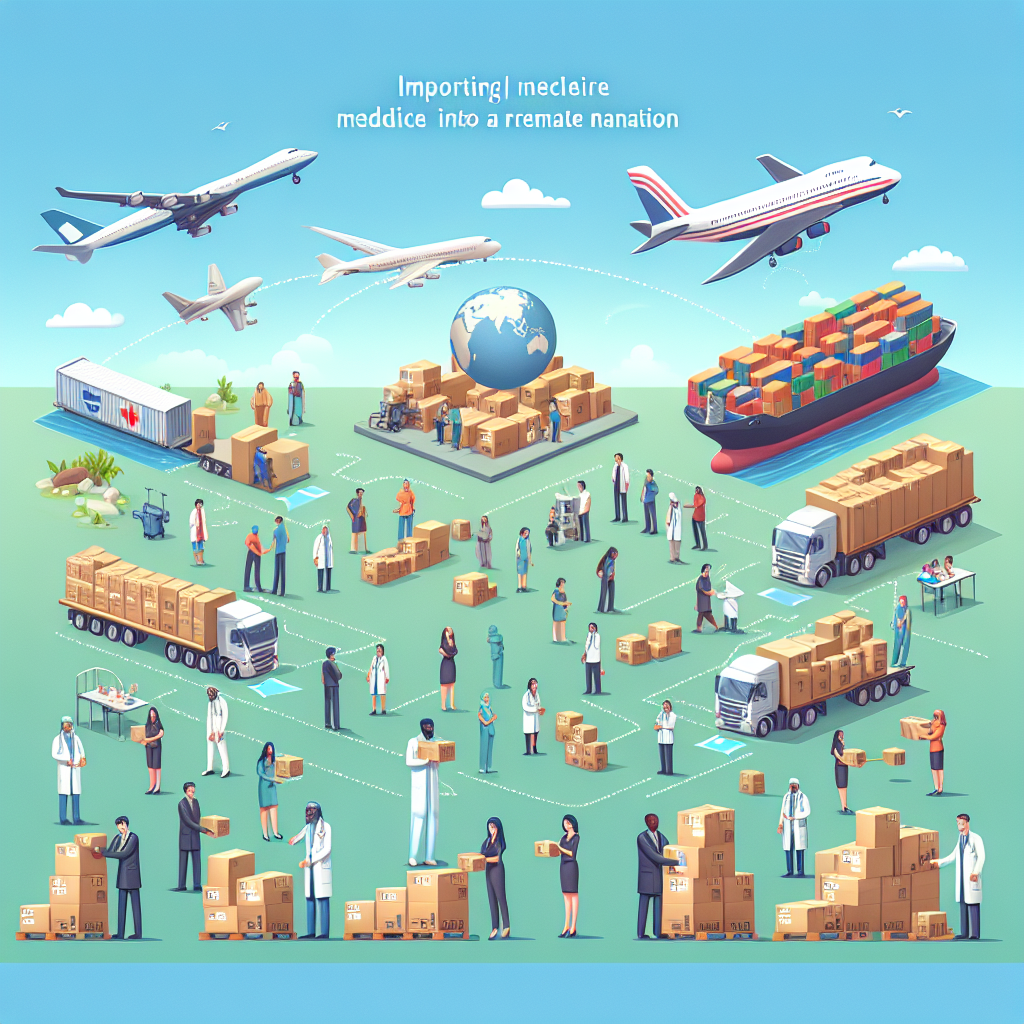Import unapproved medicine into North Korea
Importing medicines into North Korea
 View English version
View English version
조선민주주의인민공화국 약품법(1998년)에 따른 개인 약품 수입 요건
조선민주주의인민공화국(이하 조선)의 약품법은 인민들의 건강을 보호하고 약품의 안전한 사용을 보장하기 위해 제정되었습니다. 이 법은 약품의 생산, 수입, 유통 및 사용에 관한 전반적인 규정을 담고 있습니다. 특히, 국내에서 승인되지 않았거나 구할 수 없는 삶을 구하는 약품을 개인이 수입하려는 경우, 특정한 절차와 요건을 준수해야 합니다.
국가기관의 승인 필요성
개인이 약품을 수입하기 위해서는 우선적으로 국가기관의 승인을 받아야 합니다. 이는 조선의 약품 수입 통제 정책에 부합하며, 약품의 안전성과 효과성을 보장하기 위한 필수적인 절차입니다. 보건성 또는 해당 관할 기관에 수입 신청서를 제출하고, 약품의 필요성과 의료적 근거를 상세히 설명해야 합니다.
의료 증빙 서류 제출
약품의 수입을 정당화하기 위해서는 의사가 발행한 처방전이나 진단서와 같은 의료 증빙 서류가 필요합니다. 이러한 서류를 통해 약품이 개인의 생명을 구하는 데 필수적이며, 국내 대체 약품이 없음을 입증해야 합니다.
약품 정보 및 안전성 자료 제공
수입하려는 약품의 상세 정보와 함께 안전성 및 효과성을 입증하는 자료를 제출해야 할 수 있습니다. 이는 해외 공인 기관이나 제조사에서 발행한 문서로서, 약품의 성분, 작용 기전, 임상 시험 결과 등이 포함될 수 있습니다.
관계 기관과의 협의 및 절차 준수
보건성, 관세청 등 관계 기관과의 긴밀한 협의가 필요하며, 약품 수입과 관련된 모든 법적 절차와 규정을 준수해야 합니다. 수입 허가가 승인된 후에는 관세 절차를 완료하고 약품의 안전한 운송과 보관을 보장해야 합니다.
법적 책임 및 제재 사항
허가 없이 약품을 수입하거나 절차를 위반하는 경우, 약품법에 따라 법적 제재를 받을 수 있습니다. 이는 벌금 부과, 약품 압수, 심각한 경우 형사 처벌까지 포함될 수 있으므로 각별한 주의가 필요합니다.
사회주의 의료 체계와 개인 수입의 특수성
조선의 사회주의 의료 체계에서는 국가가 의료 서비스와 약품 공급을 책임집니다. 따라서 개인의 약품 수입은 매우 예외적인 경우로 간주되며, 국가 의료 시스템 내에서 해결책을 찾는 것이 우선입니다. 그러나 불가피한 경우, 국가기관의 허가를 통해 수입이 가능할 수 있습니다.
참고 자료
English version
Requirements for Importing Medicine for Personal Use into North Korea According to the Law of the Democratic People's Republic of Korea on Medicines (1998)
The Law on Medicines of the Democratic People's Republic of Korea (DPRK) was established to protect the health of the people and ensure the safe use of medicines. This law encompasses regulations regarding the production, importation, distribution, and use of medicines. Specifically, when an individual wishes to import a life-saving medicine that is unapproved or unavailable domestically, certain procedures and requirements must be followed.
Need for Approval from State Institutions
Firstly, individuals must obtain approval from state institutions to import medicines. This aligns with the DPRK's policies on controlling medicine imports and is essential for ensuring the safety and efficacy of medicines. An import application must be submitted to the Ministry of Public Health or the relevant authority, detailing the necessity of the medicine and the medical basis for the importation.
Submission of Medical Documentation
Medical documentation such as a prescription or diagnosis issued by a physician is required to justify the importation of the medicine. These documents must demonstrate that the medicine is essential for saving the individual's life and that there are no domestic alternatives available.
Provision of Medicine Information and Safety Data
Detailed information about the medicine, along with data proving its safety and efficacy, may need to be submitted. This can include documents from accredited international organizations or manufacturers, encompassing the medicine's composition, mechanism of action, and clinical trial results.
Coordination with Relevant Agencies and Compliance with Procedures
Close coordination with relevant agencies such as the Ministry of Public Health and Customs is necessary, and all legal procedures and regulations related to medicine importation must be adhered to. After obtaining import approval, customs procedures must be completed, and measures must be taken to ensure the safe transportation and storage of the medicine.
Legal Responsibilities and Potential Penalties
Importing medicines without authorization or violating procedures can result in legal penalties under the Law on Medicines. Penalties may include fines, confiscation of the medicines, or, in severe cases, criminal charges. Therefore, meticulous compliance with all regulations is crucial.
The Particularity of Personal Importation within the Socialist Medical System
In the DPRK's socialist medical system, the state is responsible for providing medical services and supplying medicines. Personal importation of medicines is considered highly exceptional, and solutions are typically sought within the national healthcare system. However, in unavoidable circumstances, importation may be possible through state approval.

